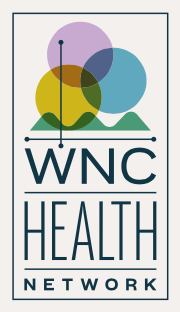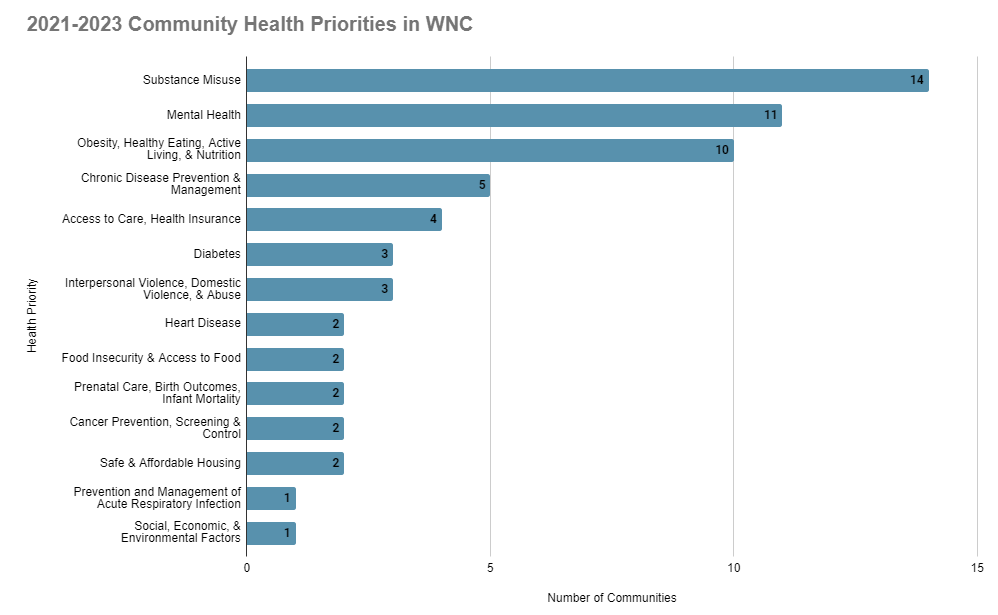The items below are paraphrased themes that emerged from a 2021 regional survey of key informants. These responses do not necessarily:
- Reflect accurate or scientifically validated information about health determinants, outcomes, and/or strategies for change.
- Represent an exhaustive list of factors that can help or hurt efforts to address this key regional health issue.
( WNCHN- Online Key Informant Survey, 2021)
The information in this section should be interpreted and used with care. It should be used only to help local health departments and agencies begin to understand community perceptions about local health issues. Communities are strongly encouraged to collect their own, local-level data to inform local planning and evaluation activities.





